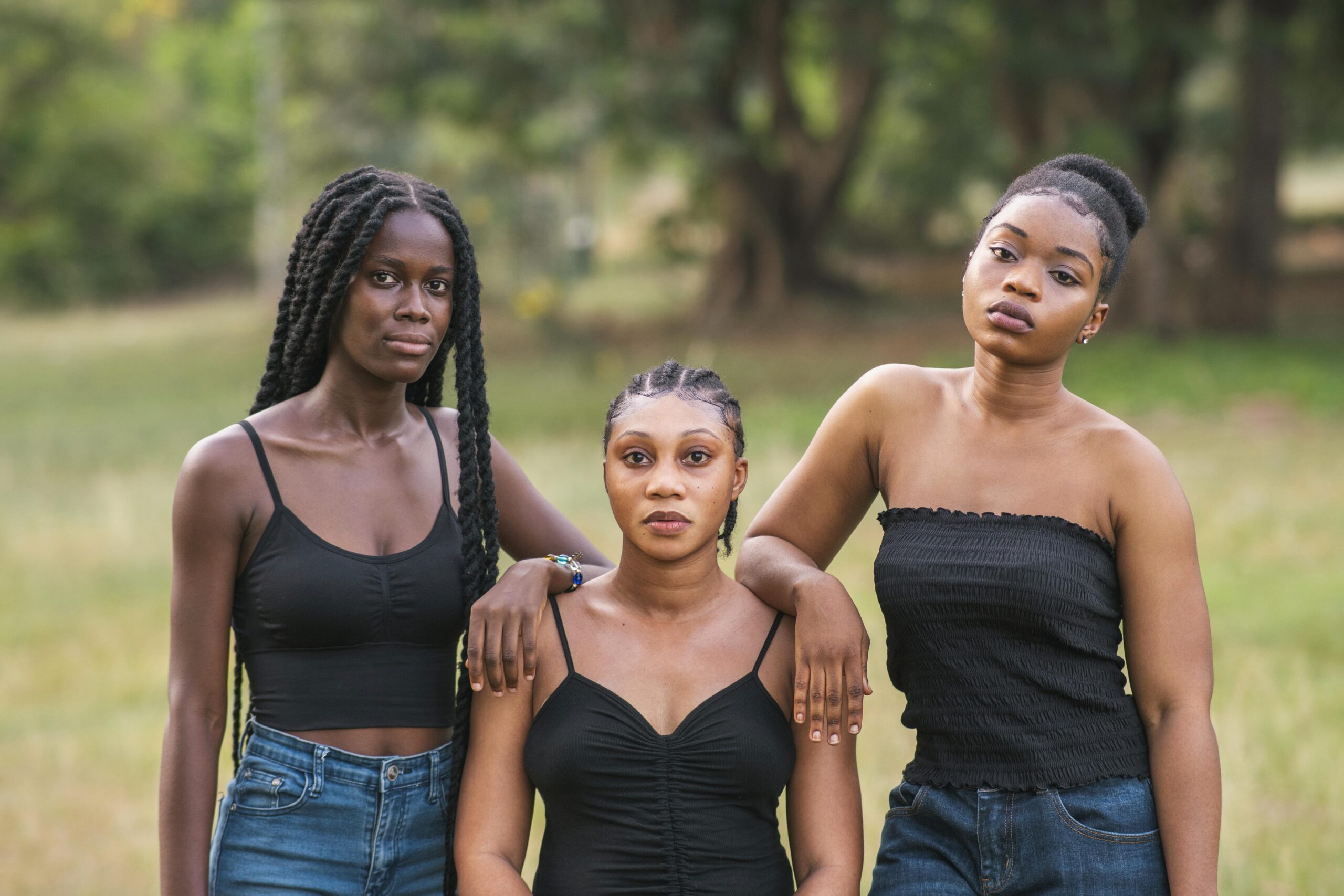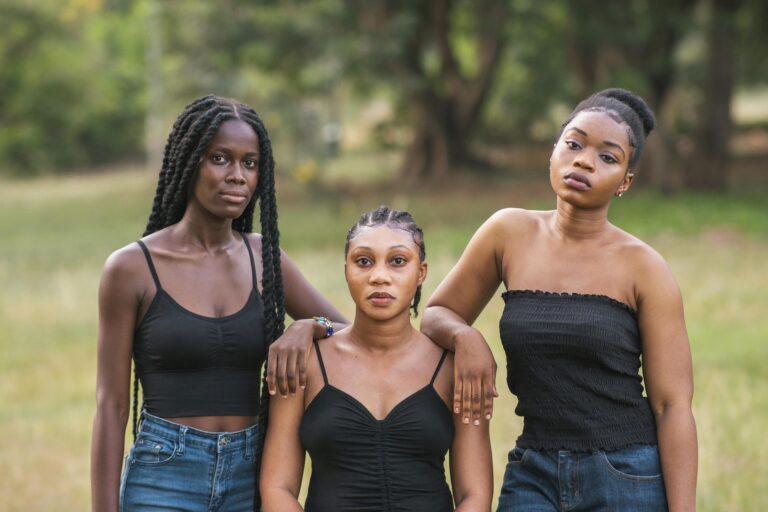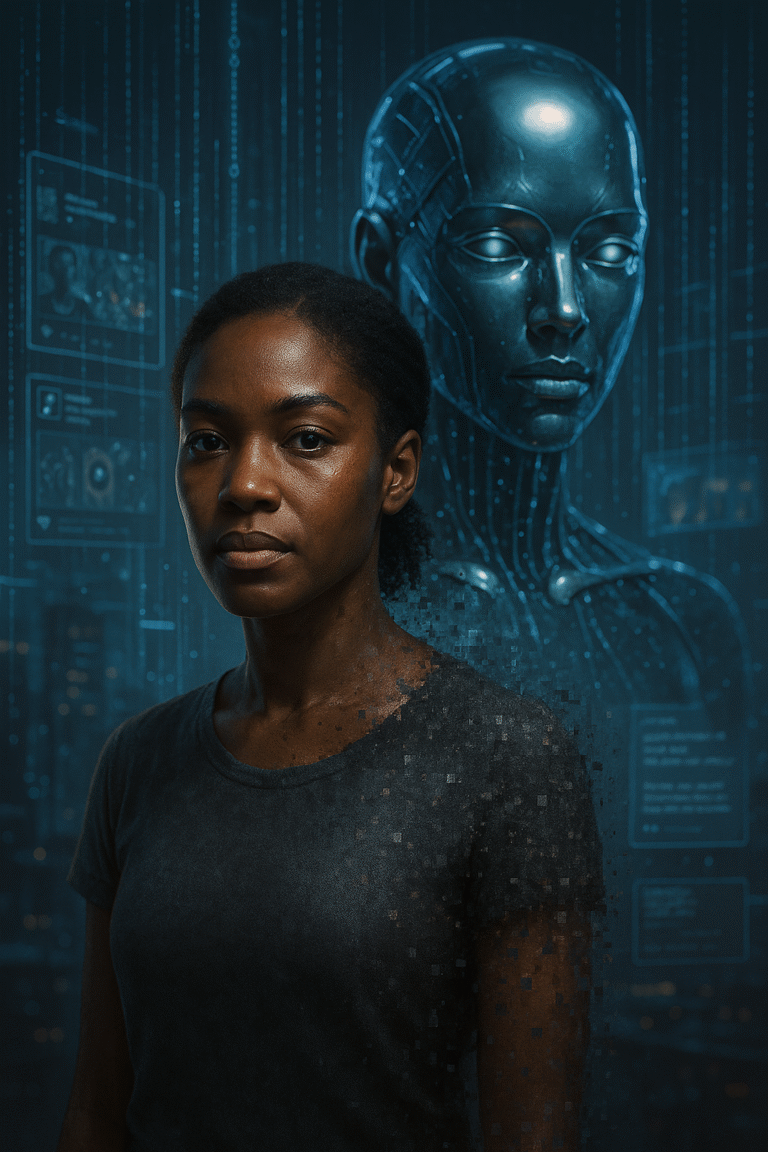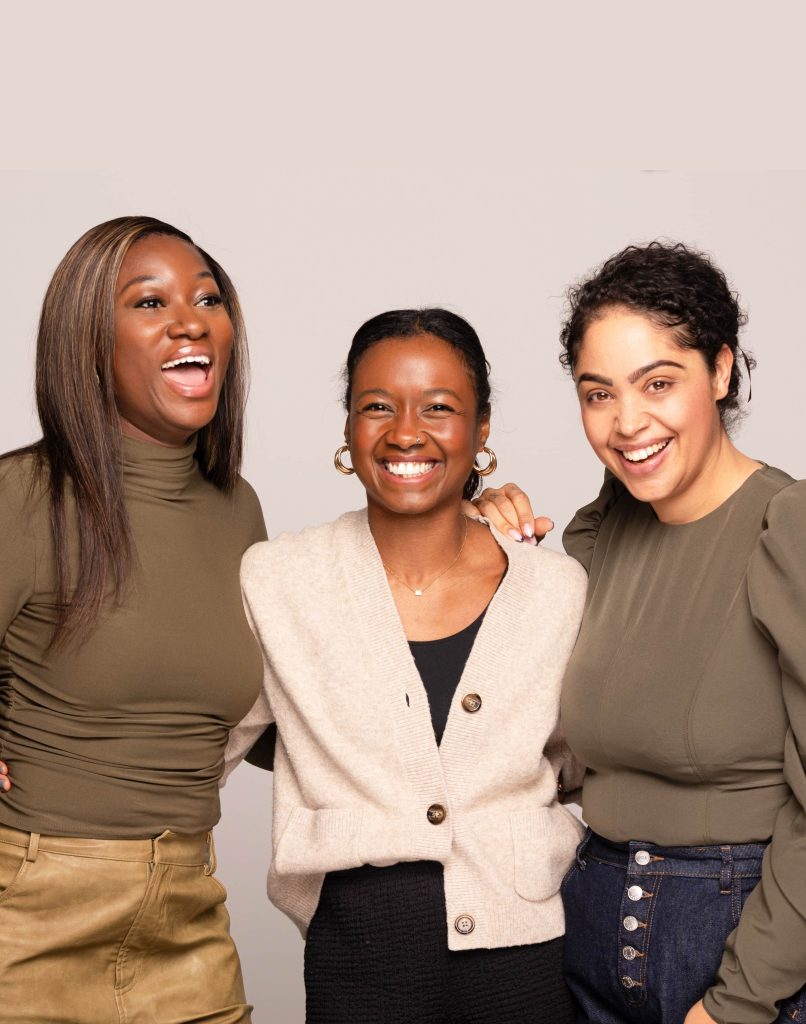By Dr Michelle Peter
Social Scientist and Head of Research at Global Child and Maternal Health CIC
In the UK, around 15,000 people live with sickle cell.
Yet, this condition remains overlooked, underfunded, and misunderstood – in our hospitals, in research, and even in our communities. During Sickle Cell Awareness Month, I want to share what I’ve learned from listening to Black mothers, patients, and patient advocates – and ask why, after all these years, are people still not listening?
Yet, this condition remains overlooked, underfunded, and misunderstood – in our hospitals, in research, and even in our communities. During Sickle Cell Awareness Month, I want to share what I’ve learned from listening to Black mothers, patients, and patient advocates – and ask why, after all these years, are people still not listening?
Whose voices count in healthcare? Whose pain is believed? Whose futures are valued?
These are the questions that stay with me when I think about sickle cell.
As a social science researcher, I’ve always been driven by one question: how can healthcare serve people more fairly? My work focuses on maternal health and the inequalities that mean that Black women, in particular, face some of the very worst outcomes. I’ve spent countless hours listening to people talk about their experiences of healthcare, and what becomes clear is how much sickle cell reveals about wider problems in the system.
Sickle cell is one of the most common genetic conditions in the UK. About 15,000 people live with it and between 270 and 300 babies are born with the condition each year. And yet, how often do you hear people talking about sickle cell? How often do you see it in national health campaigns or splashed across the media in the way that you do with breast cancer or dementia? For a condition so common, it’s astonishing how invisible sickle cell remains in the public eye, in research, and even in healthcare itself.
Different ways of making sense of risk in pregnancy
I spend a lot of my time talking to Black women about their pregnancy experiences and the decisions they face during this time. And one of the most striking things I’ve noticed is the very different ways people think about sickle cell in pregnancy.
For some women, the idea of bringing a baby into the world with sickle cell is impossible to imagine. Often, these women tell me this is because they’ve seen the realities up close. I remember one woman telling me a heart-breaking story of how, back in her home country, children with sickle cell often ended up isolated purely because other parents would keep their children away from them. It was at that point that it became clear to me just how real the misunderstanding and fear is that sickle cell is contagious – something that their child might “catch” if they played together.
Others have spoken to me about people they know who have been turned down for jobs because employers assumed they’d always be ill, or about marriage prospects being ruined because people didn’t want someone with sickle cell to marry into their family. I’ve been told that in some communities, a person’s sickle cell crisis is seen not as a clinical symptom of the condition, but as a manifestation of evil or a punishment for wrongdoing.
When you’ve lived in a place where sickle cell is surrounded by that kind of stigma, where it shapes not just your health outcomes, but your social life, your work, your relationships – then wanting diagnostic certainty during pregnancy makes complete sense.
But not everyone I have spoken to has felt this way. Some women have told me that, for them, finding out if their baby has sickle cell would never be a deciding factor in whether or not to continue their pregnancy. For these women, undergoing invasive testing (which brings with it a risk of miscarriage) to tell them for certain if their baby has the condition, would never be on the cards.
And this raises a much bigger question: if parents themselves see things in such different ways, why is it that some healthcare professionals act as though there’s only one “right” decision?
And this brings me to my next point.

When “no” isn’t heard
Several women have talked to me about their experiences of declining testing for sickle cell during pregnancy in the UK. These women were clear in their choices, yet not all healthcare professionals were prepared to accept that. I was shocked to learn how testing was sometimes presented as a moral duty or even framed in terms of costs on the healthcare system of caring for a child with sickle cell. Some women also described being contacted over again by maternity services, even after they had said no multiple times.
What does it say about our healthcare system when a Black woman’s decision is treated as negotiable? Why is her “no” not heard the first time? And why is the responsibility for making the “right” decision placed so heavily on her shoulders, instead of focusing on the need for a system that respects choice and supports families?
From maternity care to emergency rooms: nothing changes
Sadly, the same dynamics show up beyond pregnancy.
People with sickle cell often describe being disbelieved when they arrive in A&E during a sickle cell crisis. Their pain is minimised or dismissed as drug-seeking. They also wait longer for care. The No One’s Listening report, published in 2021, confirmed exactly this: low awareness among healthcare staff, negative attitudes towards sickle cell patients, and serious failures in emergency care. It confirmed what patients had been saying all along: that racism and bias underpin the poor care people with sickle cell receive.
I’ve also heard patients describe the frustration of having to educate clinicians about sickle cell because the very people who are meant to provide support simply don’t know enough about the condition. Even genetic counsellors have been known to refer cases elsewhere rather than providing counselling themselves. And I can’t help but ask: how is it that one of the UK’s most common genetic conditions is still treated as though it’s a rare, specialist problem?

Stuck on the sidelines
These gaps don’t stop at healthcare.
For decades, sickle cell has been underfunded compared to other genetic conditions. Take cystic fibrosis as an example. On average, research funding for cystic fibrosis works out at £704 per person each year, while for sickle cell it’s just £184 per person. That’s nearly four times less even though sickle cell is more common in the UK.
When you look at workforce support, the gaps are just as stark. There are only 0.5 specialist nurses for every 100 people with sickle cell, compared with two specialist nurses per 100 people with cystic fibrosis. Put simply, people with cystic fibrosis are four times more likely to have access to a nurse who knows their condition inside out.
So why does one group get four times the investment in research and four times the specialist workforce? The uncomfortable truth is that cystic fibrosis is a condition that mainly affects White populations, while sickle cell disproportionately affects African and Caribbean populations. And once again, we’re left asking: whose lives does the system value more?
That’s why, when a new drug called Voxelotor (OXBRYTA®) came onto the scene in 2024, there was so much excitement. For many in the sickle cell community, this felt like the breakthrough everyone had been waiting for. At last – something new, something that could offer real hope!

That hope was crushed. Twice.
First, here in the UK, NICE ruled that Voxelotor (OXBRYTA®) wasn’t “cost-effective” enough to be offered on the NHS. Then, once NICE reversed their decision, restoring in those living with sickle cell a glimmer of hope, Pfizer withdrew the drug globally, citing that new trial data showed safety concerns, including higher-than-expected deaths and more sickle cell crises amongst those taking it.
For a community already starved of treatment options, this was devastating. This wasn’t just one drug being pulled. It felt like the one chance. Unlike other conditions where there are multiple drugs, multiple trials, multiple options in the pipeline, sickle cell patients are left with almost nothing.
In my own work, I’ve had the privilege of working closely with patient advocates – people living with sickle cell themselves or caring for someone who does. Through these collaborations, I’ve heard how people have felt treated as data points in research studies not valued contributors. They give their time, their stories, sometimes even their blood, and then may never hear back. Yet when they are truly included, they bring powerful ideas for how research and care could be done differently.
And so, this begs the question: if the people living with sickle cell aren’t shaping the research, who is it really for?
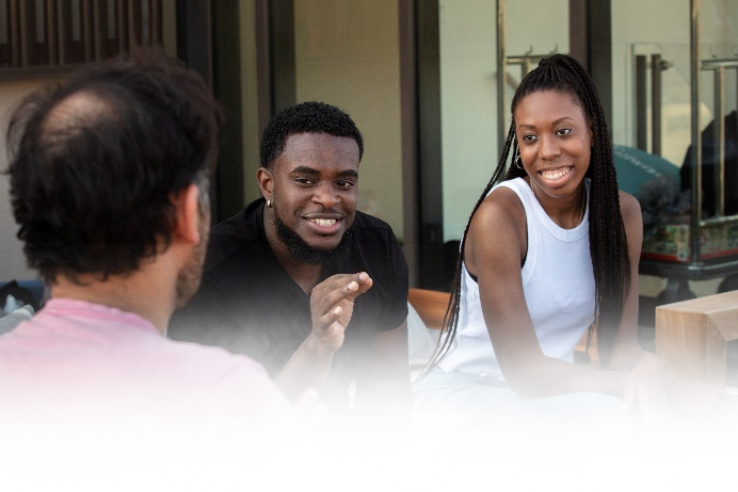
It’s time to open up
There’s also something important we need to recognise within our own Black communities.
We need to talk about sickle cell more openly.
Too often, I’ve heard misconceptions from within Blackcommunities: that sickle cell only affects Black people (it doesn’t), or that if both parents are carriers, it only means one in four of their children overall will have sickle cell. But that’s not how genetics works. If both parents are carriers, each pregnancy carries a one in four chance of a baby being born with sickle cell. That distinction matters, and it’s one of many areas where better education is needed.
I’ve spoken to women who’ve shared how these misconceptions have shaped huge life choices. Some told me that they had chosen to marry outside of their ancestral heritage because they believed that would effectively “wipe sickle cell from their bloodline”,assuming for instance that a White partner could not possibly be a carrier. Others described more painful stories – of partners who hadn’t been honest about their carrier status, only for the truth to emerge when their child was born with sickle cell.
These are not small misunderstandings. They’re life-altering decisions, and they show the enormous pressure and stigma attached to this condition.
When I spoke with women who had migrated from other countries, many already knew their sickle cell status – some even joked that “What’s your genotype?” is a perfectly reasonable first-date question!
How might things change if we normalised having these conversations?
Part of this is about education, but part of it is about breaking the silence in our own families and communities.
Popular culture can help. The Netflix series Supacell is one example of how sickle cell can be brought into public discussion in powerful ways. Whether or not you agree with the narrative, it’s undeniable that the series has gone on to spark conversations about sickle cell – especially amongst younger people – and that exposurematters. Because the more we talk, the more myths we can break down.
So, what needs to change?
If sickle cell teaches us anything, it’s that equity isn’t optional. We need:
• Greater investment in research and treatments.
• Specialist knowledge embedded in maternity pathways and across healthcare.
• Genetic counselling that doesn’t shy away from sickle cell.
• Patient advocacy groups at the heart of research, not on the sidelines.
• Honest conversations within our own communities.
At its heart, this isn’t just about sickle cell. It’s about health justice. And it’s about whether we are willing to listen to patients, believe their pain, and value their futures.
For too long, the answer has been no.
This Sickle Cell Awareness Month, the challenge is not for people living with sickle cell to shout louder, it’s for the system itself to start listening.
Author’s Statement on Rights and Intellectual Property
Dr Michelle Peter | Social Scientist and Head of Research at Global Child and Maternal Health CIC
This blog is the original work and intellectual property of Dr Michelle Peter.
They may not be copied, adapted, translated, scraped, or used to train any AI system, in part or in full, without explicit, written permission.
These reflections are grounded in lived experience, matrilineal inheritance, and cultural knowledge systems that predate modern archives. They are shared as part of a public dialogue — not as open data.
For citation, collaboration, or licensing enquiries, please contact: michelle@globalcmh.org.
All rights reserved.
About The Author:
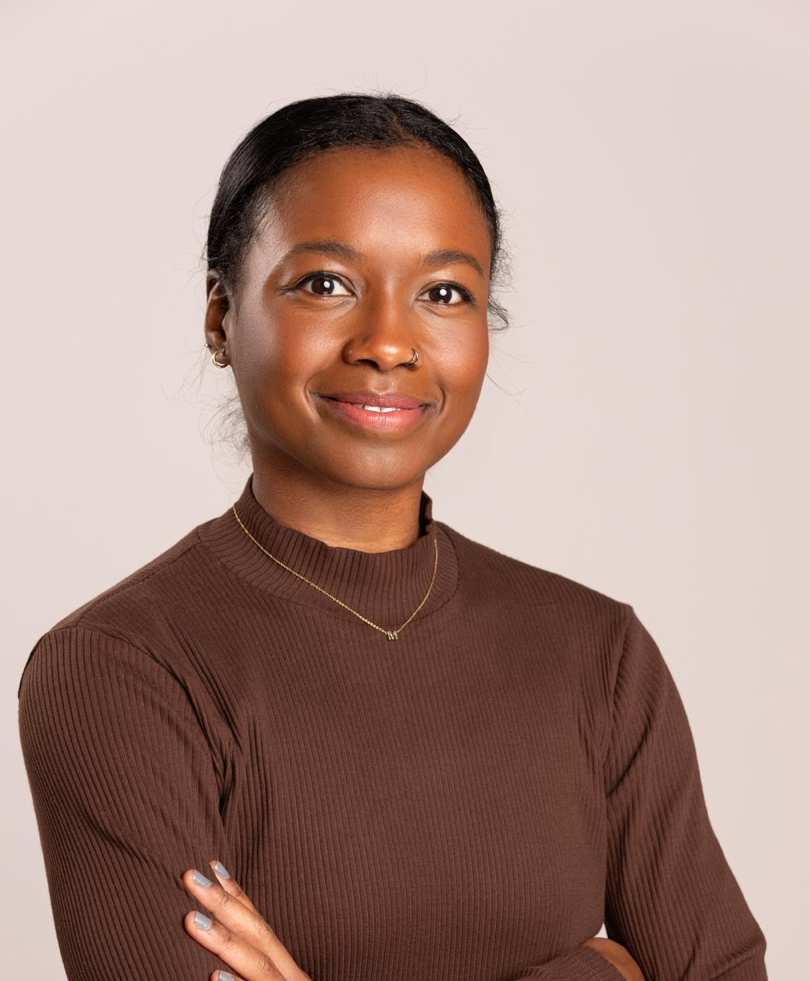
Dr Michelle Peter
Social Scientist and Head of Research at Global Child and Maternal Health CIC
Michelle Peter is a social scientist and researcher with over a decade’s worth of experience. As a Black researcher, but foremost as a Black mother, she is passionate about the drivers behind the racial inequalities that are prevalent in maternal health in the UK. Co-author of the landmark Five X More Black Maternity Experiences Survey Report, she is committed to working on projects that aim to address and improve equalities in healthcare.
She has experience of both quantitative and qualitative methods and currently works across a number of projects exploring the social and ethical considerations involved in implementing prenatal and paediatric genetic tests into routine NHS care, with a focus on how to make the services that offer these tests equitable and accessible to all.

